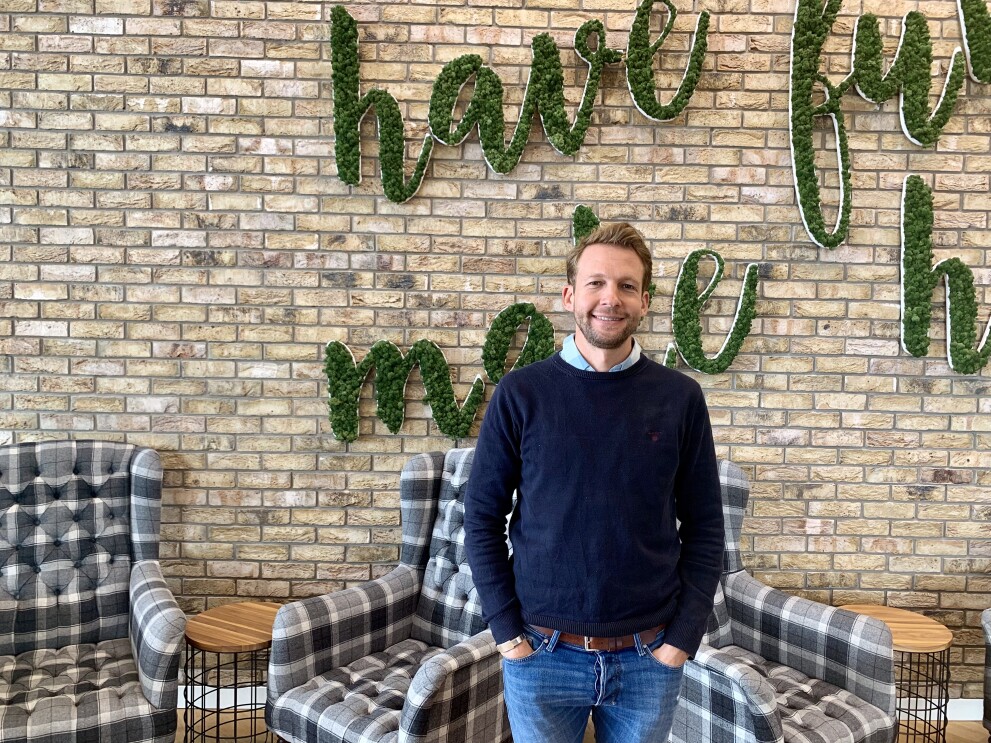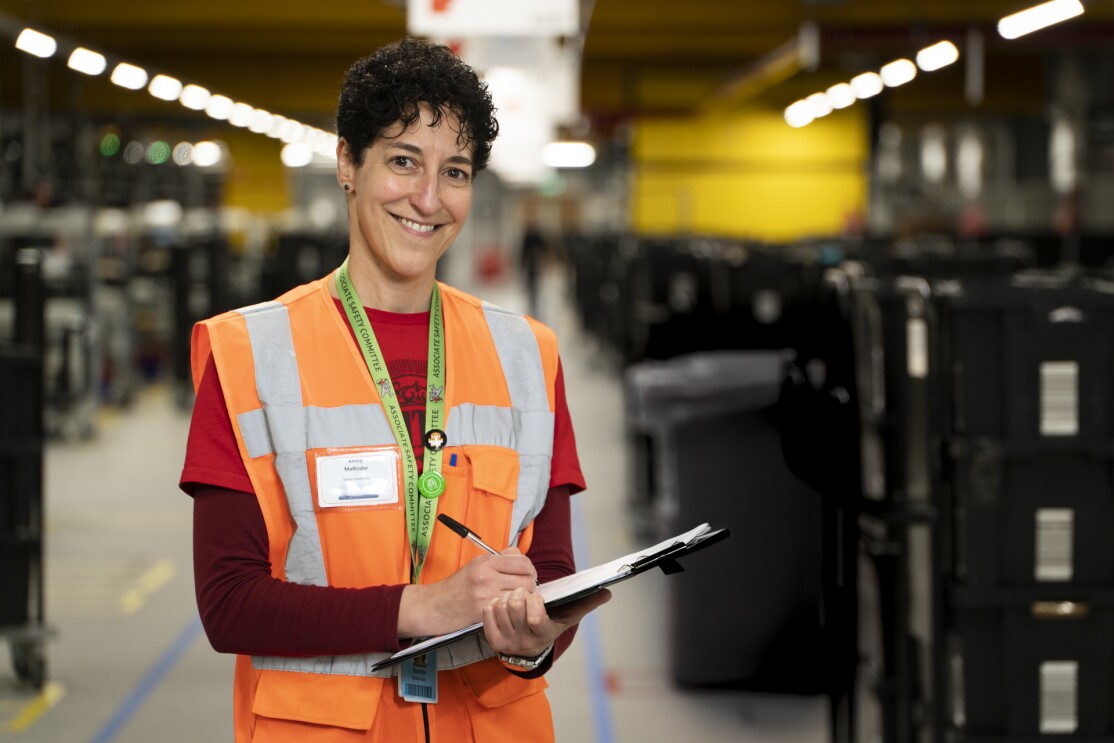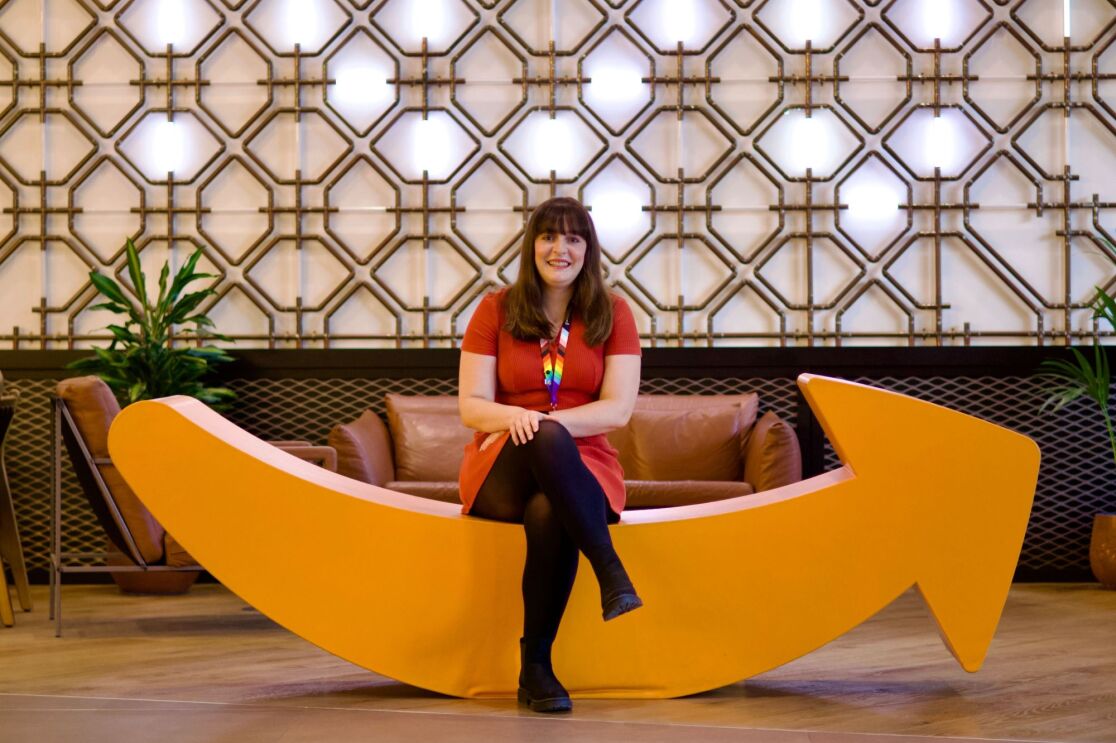Mentoring is a brilliant way to develop your career – whether you’re looking for practical career advice, a wider network of professional contacts, or just a second opinion on your latest big idea.
Amazon Circles, our peer-to-peer mentoring programme, is led by Karl Viedge in the UK. Karl’s day job as a Senior Manager in Finance Operations involves overseeing payment transaction processes and helping to drive the end-to-end rollout of Amazon’s transactional products.
But Karl’s role in relation to Amazon Circles involves a very different set of challenges and opportunities. Through Circles’ network of Members and Advisors, everything is discussed – from your next big career change and technical upskilling, to life-changing decisions like starting a family.
We caught up with Karl to find out more about Amazon Circles and his role empowering colleagues through peer-to-peer mentoring.
 Karl Viedge, Senior Manager in Finance Operations and leader of Amazon Circles
Karl Viedge, Senior Manager in Finance Operations and leader of Amazon CirclesAmazon Circles is our global peer-to-peer mentoring programme which combines best practices from Lean In Circles and other mentoring research. We aim to facilitate new connections and more meaningful relationships between colleagues by increasing access to mentors, promoting career development and sharing our personal experiences.
A Circle is a small group of 3-10 employees who meet on a regular basis for peer-to-peer and senior mentorship. Employees can either join as a Member (who can search, request and join other Circles), or as an Advisor (whose role is to inspire, encourage and support). Generally, Advisors are further advanced in their own career. Each Circle is supported by a Mentor, typically a more senior Amazonian who joins the group to share their insights and perspectives and to help facilitate learning among the group.
Circles usually meet every month for up to 6 months, or the group can request to meet for longer. Once a Circle has been running for 12 months, we recommend refreshing the group and creating a new circle in order to give everyone an opportunity to expand their network.
Circles was launched in 2015 from within Amazon’s Women@ employee affinity group, which focuses on providing career development support for women across Amazon. I got involved a couple of years after it started and I now lead the programme – which is a huge honour.
Employees of all genders can participate in Circles and we actively encourage them to do so, as it’s such an effective way to support career development. We work hard to ensure gender diversity amongst Members and Advisors. We have found, for example, that it’s an excellent opportunity for men to have first-hand experience of the challenges that women may face in their careers. One of the main goals of Circles is for our employees to be able tackle gender diversity issues together from the same side of the table.
Acting as a mentor has helped me immensely – and I think the mutual benefits of mentoring are something we should shout about more often.
Helping a colleague get to the heart of a personal or professional challenge helps you to assess and reflect on your own challenges. It’s an invaluable way to practice how you respond to hard times or big decisions. And most importantly, it adds an extra layer of depth and meaning to the work I already do with Amazon.
Being a truly great mentor means making yourself available to listen; leading by example through demonstrating your own vulnerability and willingness to learn; and being open to the huge range of challenges, learning opportunities and real-life scenarios that can impact any of us at any time.
I had to learn how to listen before talking or offering advice. By admitting my own faults and weaknesses, I’ve been able to open up deeper conversations and created a space where vulnerability is accepted and normal. In turn, that’s helped me to tackle my own weaknesses in a way that is honest and realistic.
Naturally it differs between mentees – nobody is ever the same and a great mentor will be able to adjust accordingly. But there are core practices that underpin any kind of professional or personal development. In simple terms, it’s so important to tackle your challenges with a growth mindset.
Thinking tactically and having a goal-based approach to mentoring is incredibly useful, so I always ask myself and my mentees to picture what they want to achieve and we work back from there, laying the stepping stones in real, practical terms.
For example, if you want to move up into a senior management position, what skills do you require that you may not have already? How do you develop those skills, and who can you speak to for help? How would you prepare for the interview? And once you’ve got the job, how do you plan for the next phase of your career? Those questions are much easier to answer once you’ve been through the process yourself.
I’ve worked with a mentor several times throughout my career. It helped me realise that people far more senior than myself were also struggling with the same issues as me. That made me feel more at ease about struggling or failing. The key lesson for me was: no matter what situation you’re in, the mindset you adopt is more important than anything else.
My mum! She always emphasised the importance of a growth-based mindset. She wanted to ensure that I would always set myself challenging goals and daily milestones – no matter what career I embarked on. That’s why Amazon felt like a perfect fit for me.
I love that grassroots initiatives are given the room to flourish at Amazon – like our affinity networks Women@ and WiFi. Likewise, the growth in adoption of flexible and remote working has been a brilliant way to support our female colleagues.
We also launched Amazon Amplify earlier this year, a wide-ranging set of initiatives that builds on and expands our existing efforts to promote gender diversity in the tech and innovation sectors.
I’m proud to add that we work hard to promote opportunities for technical retraining, and we always celebrate the success of our female innovators. That’s why we were delighted to be recognised as Female Tech Employer of the Year 2019 by Women in Tech.
All of these initiatives are focused on supporting the next generation of female innovators and leaders. They’ve already been instrumental in driving change and there’s always more to come.
- There are plenty of ways to make yourself available as a mentor. Whether it’s a formal programme like Circles or an informal network of peers – the first step is always to make yourself available and approachable.
- Being a good mentor is not about how much experience or brilliant advice you bring to the table. Instead, it’s much more about actively listening in order to properly understand your mentee’s perspective before providing the help they need.
- Always approach mentoring as a learning opportunity for yourself. It should be useful for you and your mentee!








